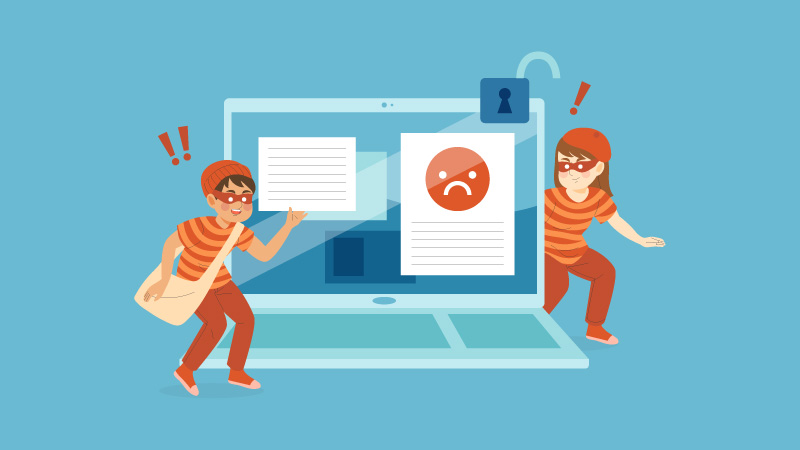In the world of digital marketing, plagiarism isn’t just unethical, it’s a silent SEO killer. Search engines like Google reward originality and penalize duplication. Whether you’re a blogger, content strategist, or business owner, understanding plagiarism’s impact on SEO is vital if you want your website to thrive in search results.
This guide explains what plagiarism is, how it harms your search rankings, and the proven strategies you can use to maintain originality and SEO integrity.
What is Plagiarism in SEO?
Plagiarism refers to copying someone else’s content i.e, text, images, or ideas and presenting it as your own without proper credit. In SEO, plagiarism isn’t limited to copy-pasting; it includes excessive paraphrasing, reusing your old content, or aggregating others’ work without citation.
Types of Plagiarism in Content Creation:
- Direct plagiarism: Copying text word-for-word without credit.
- Paraphrased plagiarism: Rewording another’s content too closely without acknowledgment.
- Self-plagiarism: Reusing your own previously published work.
- Patchwork plagiarism: Mixing pieces of content from multiple sources to create a “new” one.
Even if it’s unintentional, Google’s algorithms are smart enough to detect duplication and they won’t reward it.
How Plagiarism Affects SEO Performance
1. Google Penalties and Deindexing:
Google’s Helpful Content Update emphasizes originality. When duplicate content is detected, Google may devalue or even deindex the plagiarized page.
According to SEMrush, duplicate content can affect up to 29% of websites indexed by Google significantly reducing their visibility.
2. Loss of Ranking Authority
Search engines prioritize websites that add unique value to users. If your site features copied or low-value content, Google sees no reason to rank it higher than the original source.
3. Erosion of User Trust
Readers can easily identify copied or AI-rewritten content. Once your credibility is questioned, engagement metrics like dwell time and return visits drop signaling poor user experience to search engines.
4. No Added Value for Google
Plagiarized content doesn’t add anything new. Since Google’s goal is to deliver fresh, helpful insights, duplicated work rarely earns rankings or featured snippets.
How to Avoid Plagiarism and Protect Your SEO
1. Create 100% Original Content
Start with research but write from your unique perspective. Add fresh insights, examples, or data. Google values expertise and authenticity (E-E-A-T) Experience, Expertise, Authoritativeness, and Trustworthiness.
2. Cite Your Sources Properly
When referencing statistics, quotes, or studies, always credit the original source. Use hyperlinks or in-text citations. This not only avoids plagiarism but strengthens your content authority.
3. Use Plagiarism Detection Tools
Run your content through tools like Copyscape, Grammarly Premium, or Quetext before publishing. These tools help catch unintentional duplication that could harm your SEO.
4. Paraphrase Thoughtfully
If you’re inspired by another piece, restructure the content entirely don’t just change words. Add your own commentary or expand with new data to make it distinct.
5. Repurpose Creatively (Not Recycle)
If you’re republishing old blogs, refresh them with new statistics, visuals, or angles. Turning a blog into an infographic, video, or podcast counts as repurposing not recycling.
6. Optimize for User Intent
Before writing, ask: “What unique value am I adding for the reader?”
Creating content that answers user intent naturally prevents duplication and increases your chance of winning featured snippets.
Google’s Duplicate Content Policy Explained
Not all duplicate content is plagiarism. Google understands that some duplication (like syndicated posts or legal disclaimers) is unavoidable.
However, unauthorized or uncredited copies can trigger its duplicate content filter, lowering visibility for all versions except the original.
To handle duplicate content correctly:
- Use canonical tags (
rel="canonical") when republishing content on multiple domains. - Always credit the original author.
- Rewrite syndicated content to ensure at least 70–80% uniqueness.
Plagiarism vs Duplicate Content: Key Differences
| Aspect | Plagiarism | Duplicate Content |
|---|---|---|
| Definition | Copying others’ content without credit | Same content appearing across pages or sites |
| Intent | Unethical and deceptive | Often unintentional |
| Impact | Legal + SEO penalties | SEO ranking dilution |
| Solution | Credit or rewrite | Use canonical tags / unique descriptions |
Both can hurt your SEO, but plagiarism carries reputational and legal risks in addition to ranking loss.
Learn more about duplicate content in SEO.
Consequences of Plagiarism Beyond SEO
- Legal Risks: Copyright infringement lawsuits can arise from unlicensed content use.
- Brand Damage: Once audiences lose trust, reputation recovery is slow.
- Partnership Losses: Collaborators and clients may cut ties with unethical content creators.
Conclusion: Originality Is the Ultimate SEO Strategy
Plagiarism doesn’t just hurt rankings, it destroys trust.
Search engines and users alike value authenticity, depth, and transparency. By creating unique content, citing sources, and following SEO best practices, you’ll protect your brand’s reputation and dominate search results.
In the end, originality isn’t optional, it’s your most powerful SEO tool.
Frequently Asked Questions
Yes. Google’s algorithms identify and downrank plagiarized or duplicate content, prioritizing the original source.
Use tools like Copyscape, Grammarly, or Turnitin to detect copied text before publishing.
Only if you significantly restructure the content and add original insights. Simple word changes aren’t enough.
Yes, but with caution. Use canonical tags or rewrite portions to avoid duplicate content penalties.
Ideally 0%. However, minor overlap (like quotes or references) is acceptable if properly attributed.




